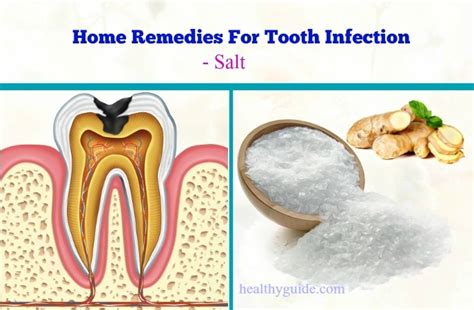Naturally Heal Tooth Infections Without Antibiotics: Exploring Holistic Approaches
Tooth infections, or dental abscesses, are painful and potentially serious conditions. While antibiotics are often prescribed, many are exploring natural ways to manage and heal these infections. This article explores various holistic approaches to support the body's natural healing processes in addressing tooth infections. It's crucial to remember that this information is for educational purposes and should not replace professional dental advice. Always consult with your dentist or healthcare provider for diagnosis and treatment of any dental infection. Delaying professional care can lead to serious complications.
What Causes Tooth Infections?
Tooth infections typically stem from bacteria accumulating within the tooth's pulp (the inner soft tissue) or surrounding tissues. This can result from untreated cavities, cracked teeth, gum disease (periodontitis), or dental trauma. The bacteria trigger inflammation and infection, leading to pain, swelling, and potentially the formation of an abscess (a pocket of pus).
Can You Naturally Heal a Tooth Infection?
While you can't completely eliminate a severe infection without professional intervention, natural methods can support healing and alleviate symptoms. These methods primarily focus on reducing inflammation, boosting the immune system, and promoting oral hygiene. They are most effective in the early stages of an infection or in conjunction with professional dental care.
1. Oil Pulling:
This ancient Ayurvedic technique involves swishing oil (typically coconut or sesame) in your mouth for 15-20 minutes. It's thought to draw out bacteria and toxins, improving oral hygiene. However, there's limited scientific evidence to support its effectiveness against tooth infections specifically. While it might offer some benefit in reducing oral bacteria, it's not a replacement for professional treatment.
2. Saltwater Rinses:
Warm saltwater rinses are a simple, readily available home remedy. The salt's antiseptic properties can help reduce inflammation and rinse away debris. Dissolve 1/2 to 3/4 teaspoon of salt in a glass of warm water and rinse gently several times a day.
3. Hydrogen Peroxide Rinse (Use with Caution):
Hydrogen peroxide has antimicrobial properties and can be used as a rinse (diluted to 3% solution). However, use it with extreme caution and only as directed by a dental professional. Overuse can damage oral tissues.
4. Essential Oils (Consult a Professional):
Some essential oils, like tea tree oil and clove oil, possess antimicrobial properties. However, never ingest essential oils, and always dilute them significantly before applying topically. Consult with a qualified healthcare professional before using essential oils for dental issues, as improper use can cause harm.
5. Improving Diet and Immune System:
A healthy diet rich in vitamins and antioxidants can support your immune system's ability to fight infection. Ensure you're consuming plenty of fruits, vegetables, and whole grains. Sufficient rest and stress management are also crucial for immune function.
Can You Prevent Tooth Infections?
Prevention is key! Maintaining excellent oral hygiene is paramount. This includes:
- Brushing twice daily: Use a fluoride toothpaste and a soft-bristled brush.
- Flossing daily: Removes plaque and food particles from between teeth.
- Regular dental checkups: Allows early detection and treatment of cavities and gum disease.
- Healthy diet: Limits the sugars that feed bacteria.
What if Natural Remedies Don't Work?
If your tooth infection persists or worsens despite home remedies, seek immediate professional dental care. Ignoring a severe infection can lead to serious complications, including:
- Spread of infection: The infection can spread to other parts of your face, jaw, or even bloodstream (sepsis).
- Loss of tooth: The infection can damage the tooth beyond repair.
- Bone loss: Advanced infections can destroy the bone surrounding the tooth.
Conclusion:
While natural methods can offer supportive care for minor oral issues, they are not a substitute for professional dental treatment of tooth infections. Early intervention by a dentist is crucial to prevent serious complications. This article serves as informational guidance only and should not be considered medical advice. Always consult a qualified healthcare professional for diagnosis and treatment of any medical condition.

